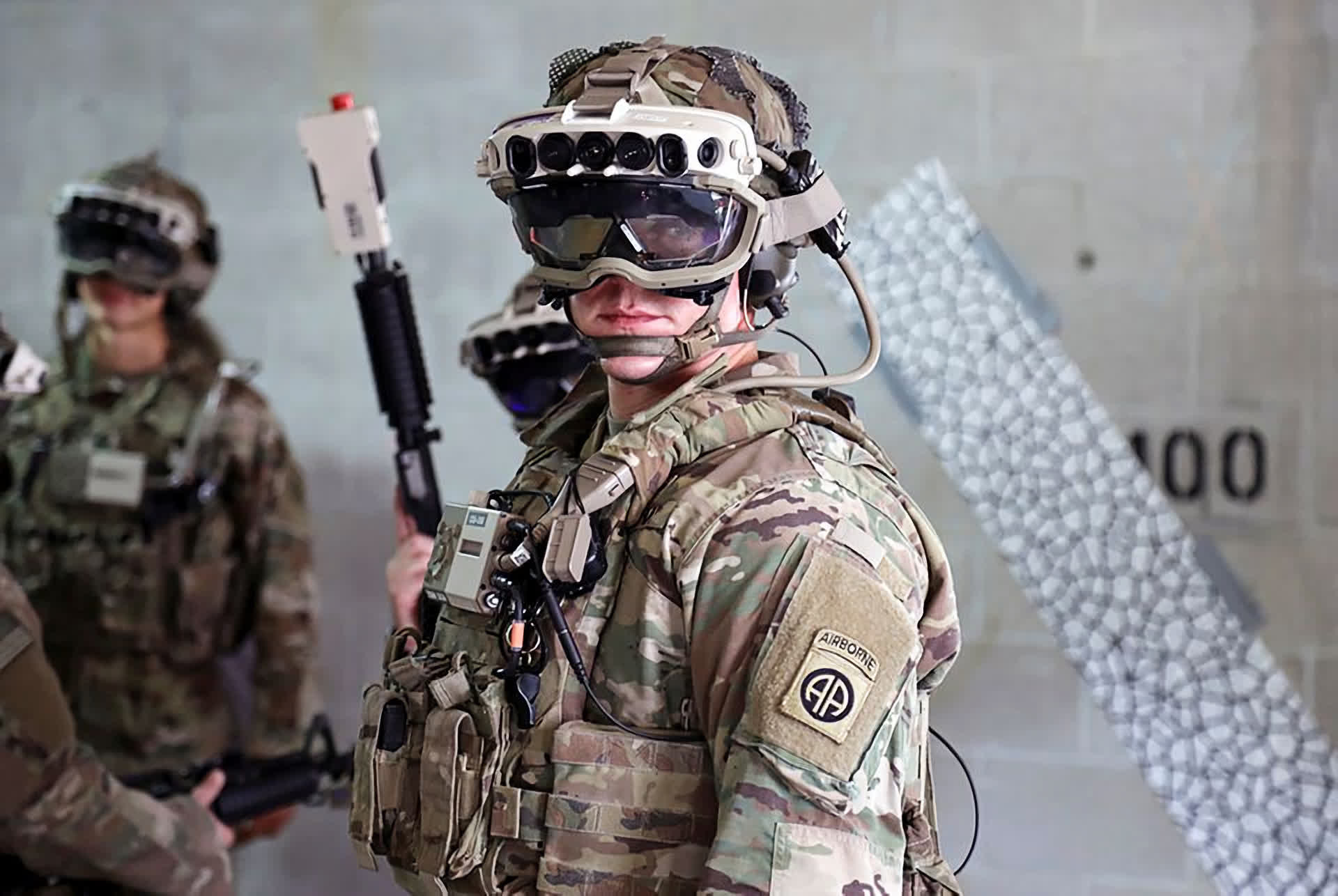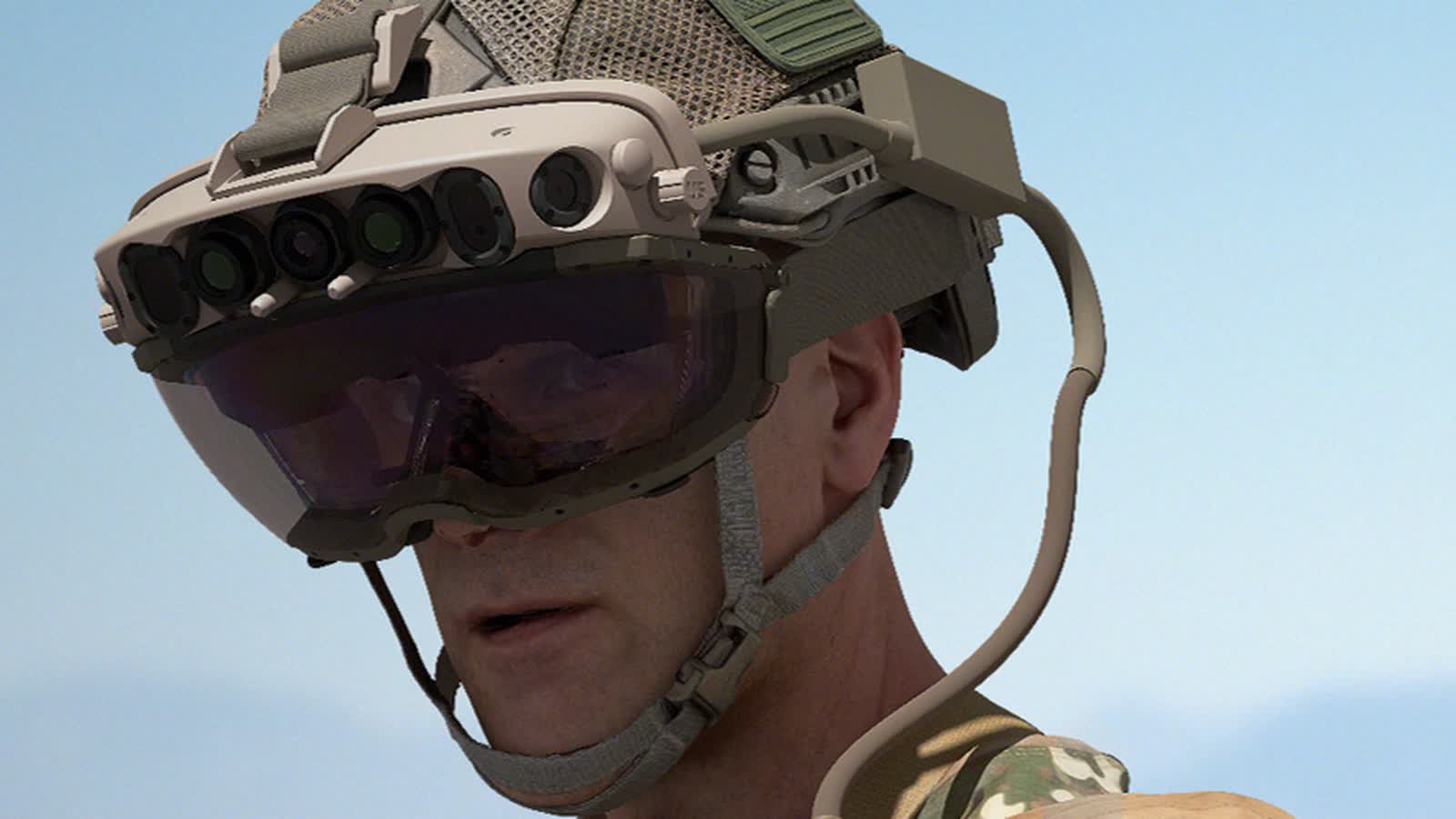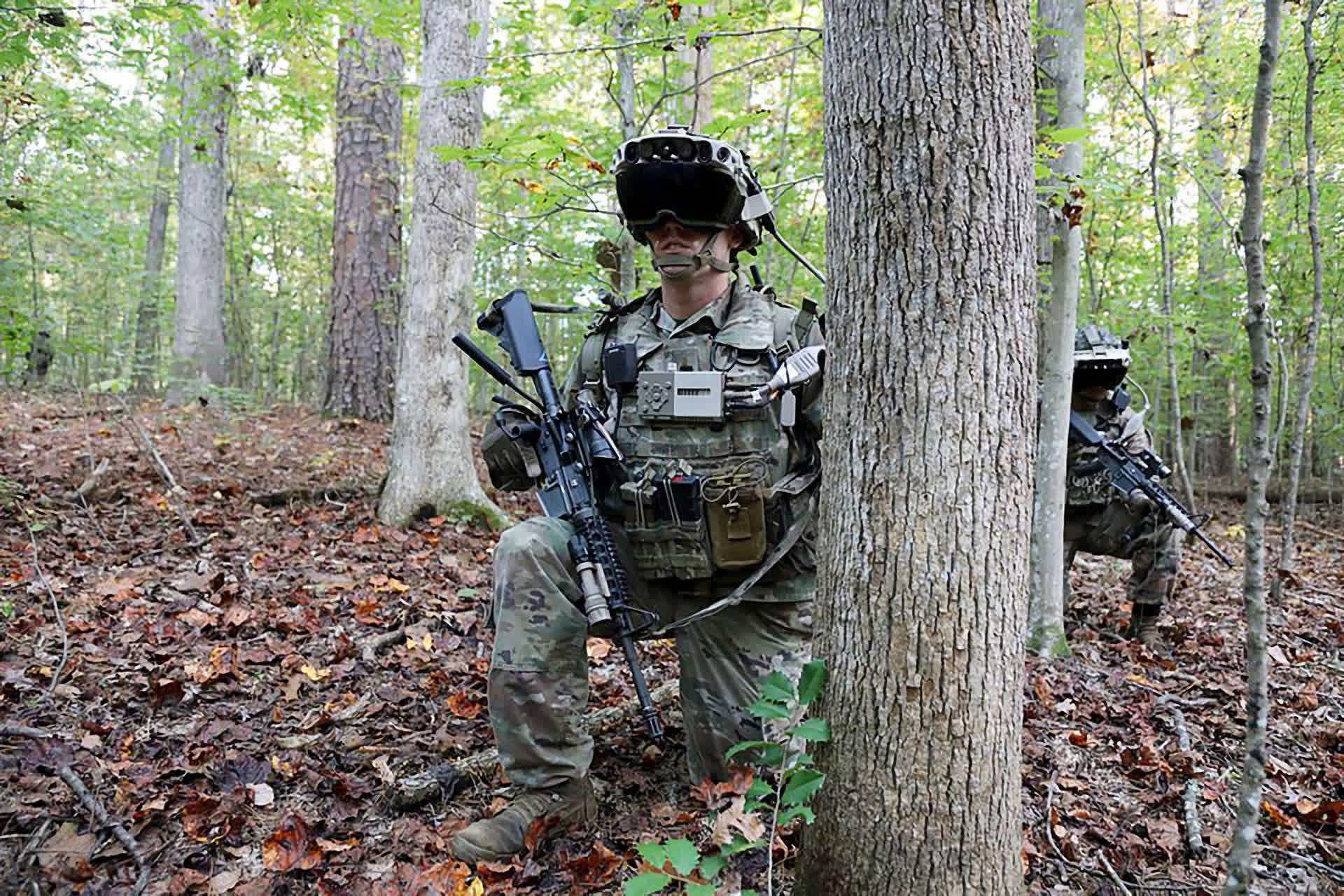What just happened? The controversial deal between Microsoft and the US Army for the military branch to buy 6,900 HoloLens-based headsets at the cost of $400 million has been blocked by congress. As a consolation, the government approved $40 million for Microsoft to build a new and improved version that soldiers will hopefully hate less.
To recap, Microsoft was awarded a $480 million contract to provide the US Army with Integrated Visual Augmentation System (IVAS) headsets in 2018. The devices combine high-resolution night, thermal, and soldier-borne sensors into a heads-up display. Powered by Microsoft Azure cloud services, they also leverage augmented reality and machine learning to enable a life-like mixed-reality training environment.
The initial agreement was expanded in March 2021, ensuring Microsoft would provide finalized production versions, parts, and support in a deal potentially worth billions across a decade.
But the IVAS deal has been beset by problems from the start. There were the delays that pushed back orders by a year, a warning from a Department of Defense oversight agency that the whole thing could be a waste of taxpayer money, and, most worrying of all, reports that soldiers hated them as they can cause headaches, eye strain and nausea, symptoms that 80% of testers said appeared within three hours of use---and that's not even mentioning the devices' failure of essential functions. One tester said the headsets could get military personnel killed.

The latest setback comes in a defense appropriations summary (PDF) that reveals the IVAS program will not receive the $400 million in funding requested by the Army to buy 6,900 headsets; instead, it will get $40 million to go toward developing a new, better version.
Last month, the Army said it would place orders for completed IVAS version 1.2 headsets "after qualification and operational testing."

The Army has already ordered 5,000 IVAS units and handed Microsoft $125 million to create a revised model. It still plans to spend up to $21.9 billion over the next ten years for as many as 121,000 headsets.
Microsoft doesn't seem to be worried about congress' decision. A spokesperson told The Register, "The regular cadence of building and testing IVAS is a critical part of the development process. Ultimately, this cadence will help us refine and improve the technology to ensure it brings unparalleled protection and capabilities to America's Soldiers."
